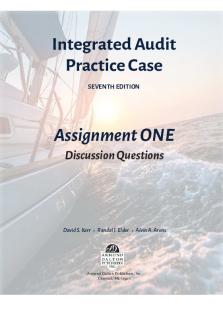Week 1 Discussion Questions PDF

| Title | Week 1 Discussion Questions |
|---|---|
| Author | BRITTANY DYER |
| Course | Working With The Juvenile Justice System |
| Institution | University of Phoenix |
| Pages | 1 |
| File Size | 31.5 KB |
| File Type | |
| Total Downloads | 3 |
| Total Views | 199 |
Summary
Download Week 1 Discussion Questions PDF
Description
Which current theories on criminal behavior – classical or biological – do you think most applies to juvenile offenders?
I have a hard time deciding which applies more because both classical and biological theories highly relate to juvenile offenders. With the classical theory you have juvenile offenders who commit crimes for the joy of it and the adrenaline that they get. They learn a routine and become persistent in doing so. Say you have a teenager going into a store they shop lift their first item and they got by with it and they felt the joy of getting by with it and the adrenaline of doing it there is a good chance they will continue to turn around and do it for the enjoyment and they feel they have achieved something by getting away with the crime they have committed. With the biological theory I believe relates also because things run in genetics. I have witnessed this myself with people surrounding me. I know of a guy who has been repeatedly in and out of jail just like his father growing up his father was constantly in and out of jail for drugs and such now today his son follows in his footsteps. I believe the lifestyle you grow up in can really have an effect on juvenile offenders if they see this behavior growing up they are more than likely to grow up doing the same things.
How much credence do you personally give to the psychoanalytic theory with regard to juvenile criminal behavior? Why?
I have to say I really agree with the psychoanalytic theory with regards to juvenile criminal behavior because a lot of mental states or conditions, anti-social personality traits and such can definitely have you make poor decisions and can cause a individual to go out and make poor decisions. When an individual has certain mental disabilities, it can cause their actions to be unpredictable and this can result in a juvenile committing different types of crimes. When a child grows up in a home around a lot of violence, drug use, etc. they are more likely to grow up and commit these same acts because of their childhood it is basically what they have been taught during their childhood. Traumatic experiences can also have an individual act out and commit varies of crimes depending on the situation they are in.
What is the difference between primary deviation and secondary deviation according to Lemert’s labeling theory?
Is it possible for there to be one unifying theory to explain juvenile delinquency? Why or why not?...
Similar Free PDFs

Week 1 Discussion Questions
- 1 Pages

Week 4 Discussion Questions
- 3 Pages

Week 6 discussion Questions
- 5 Pages

Discussion Problems - Week-1
- 3 Pages

Week 1 - Discussion
- 1 Pages

Week 1 discussion
- 4 Pages

Week 1 discussion
- 3 Pages

Discussion week 1
- 50 Pages

Week 1 Discussion Post
- 1 Pages

Week 1 discussion 2
- 1 Pages

Week 1 - week 1 discussion post
- 4 Pages

Week 1 - Weekly Discussion 1
- 2 Pages

Unit 1 Discussion Questions
- 3 Pages

Discussion Questions 1
- 7 Pages
Popular Institutions
- Tinajero National High School - Annex
- Politeknik Caltex Riau
- Yokohama City University
- SGT University
- University of Al-Qadisiyah
- Divine Word College of Vigan
- Techniek College Rotterdam
- Universidade de Santiago
- Universiti Teknologi MARA Cawangan Johor Kampus Pasir Gudang
- Poltekkes Kemenkes Yogyakarta
- Baguio City National High School
- Colegio san marcos
- preparatoria uno
- Centro de Bachillerato Tecnológico Industrial y de Servicios No. 107
- Dalian Maritime University
- Quang Trung Secondary School
- Colegio Tecnológico en Informática
- Corporación Regional de Educación Superior
- Grupo CEDVA
- Dar Al Uloom University
- Centro de Estudios Preuniversitarios de la Universidad Nacional de Ingeniería
- 上智大学
- Aakash International School, Nuna Majara
- San Felipe Neri Catholic School
- Kang Chiao International School - New Taipei City
- Misamis Occidental National High School
- Institución Educativa Escuela Normal Juan Ladrilleros
- Kolehiyo ng Pantukan
- Batanes State College
- Instituto Continental
- Sekolah Menengah Kejuruan Kesehatan Kaltara (Tarakan)
- Colegio de La Inmaculada Concepcion - Cebu

